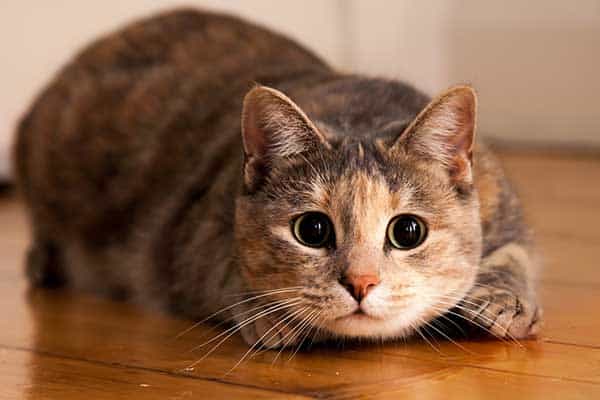Ants are common concerns in nearly every modern home today. Tiny as they are, these insects can get quite pesky.
Sadly, few homeowners consider ants as a serious problem, until the situation blows out of proportion.
If you own a cat, you may have noticed that your feline friend gets worked up each time there is an ant infestation in your home.
And understandably so, as ants are highly attracted to cat food. These bugs tend to get attracted to any cat food, be it wet or dry. So, cats often get very curious and anxious whenever ants are around.
You may have observed that in the process of chasing ants away from their food, your cat also nibbles on them. And that may get you wondering, why do cats eat ants?
Naturally, cats love to chase and catch ants. It’s part of their predatory instincts to respond to anything that moves. After hunting down the insects, your cat may also eat them. So, your cat eating ants is all part of the animal’s inherent predatory instincts.
Unfortunately, there’s nothing much you can do about your cat’s natural prey drive.
When it comes to cats and ants, the more pertinent question to settle is whether your kitto should actually eat these insects.
Table of Contents
Cats and Predatory Instincts
Like most carnivorous animals, cats have a very strong prey drive. These animals are hard-wired to respond to anything that moves.
It’s important to note that cats excel humans in nearly all the senses. They can hear better than us, have a more acute sense of smell, and their taste buds are also far more developed than ours.
Cats can also see remarkably better than humans, especially in the dark.
Due to these heightened sensitivities, your cat considers anything that moves as potential prey, and that includes ants. Most cats naturally love to chase and play with ants. Some go a step further and eat the ants that they catch.
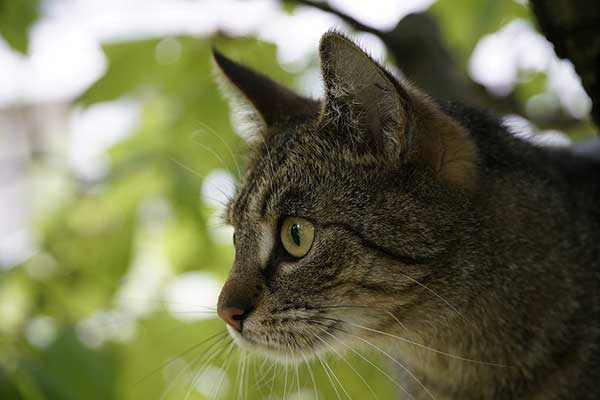
But is it ok if cats eat ants?
When it comes to cats and ants, the problem isn’t so much about the insects as it is about the poison from the ant traps.
Read on for more insights on that.
Are Cats Attracted To Ants?
We’ve already seen that ants are attracted to cat food. But are cats attracted to ants?
Yes, they are. Ants contain plenty of formic and oleic acid. These two chemicals act as pheromones that ants use to communicate amongst themselves.
Oleic acid also happens to be one of the main components of pheromones in cats.
When cats rub on things, such as furniture and outdoor posts, they tend to deposit substantial amounts of oleic acid on those surfaces.
The acid gives them a calming effect, which explains why your cat will keep rubbing against anything that has its pheromones on it.
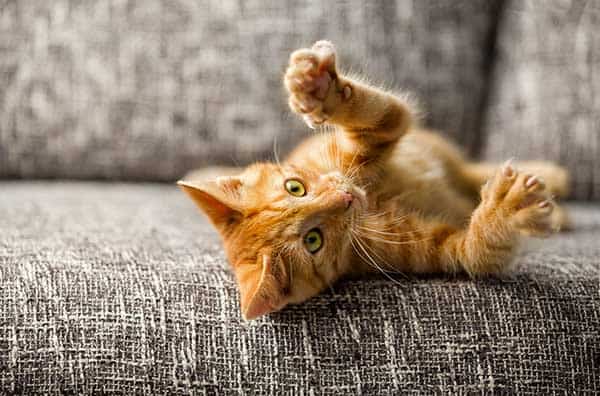
Now, live ants may not emit a lot of pheromones. But when the insects die and are crushed, they give off loads of these chemicals in the form of oleic acid.
So, a cat may chase one ant as part of its instinctive response to motion. But after hunting down and crushing the insect, then picking up the powerful smell of pheromones, your kitto will have a reason to go after more ants.
Oleic acid is also present in other common household products like olive oil.
What Happens When Cats Eat Ants?
We already mentioned that ants aren’t toxic to cats per se, and that what should worry you the most is the poison used in ant traps.
But you could still be wondering, what happens if a cat eats an ant and are ants harmful to cats?
Generally, most ant species aren’t poisonous to cats, with a few exceptions. One notable exception is fire ants which can sting your cat with an alkaloid venom that might cause allergic reactions, including anaphylaxis.
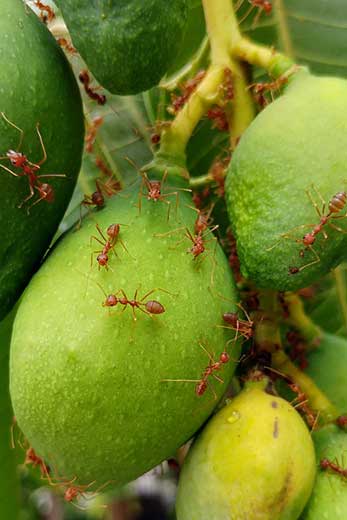
So, all fire ant species are considered toxic for cats. And that begs the question, do cats eat red ants?
Due to their red color, red ants might trigger your cat’s prey drive even better than black and other dull-colored ants. But red ants are venomous, and cats shouldn’t eat them.
The more dreaded black ants turn out to be less toxic to cats. While black cats can bite your kitto, their bites are mild and do not often result in skin reactions.
What happens if a cat eat red ants and other venomous ant species?
The immediate side effects to expect when your cat eats venomous ant species are gastrointestinal issues like vomiting and diarrhea.
Other complications include abdominal pain and drooling caused by the bitter aftertaste that some of these ants may leave in your cat’s mouth.
However, it’s important to note that your cat might still suffer digestive issues after eating non-toxic ants, especially if the cat has eaten the insects in large quantities.
The formic acid that most ants secrete is also known to cause irritation to the mouth of cats. Besides, ants might present choking hazards, especially if your cat doesn’t chew them properly.
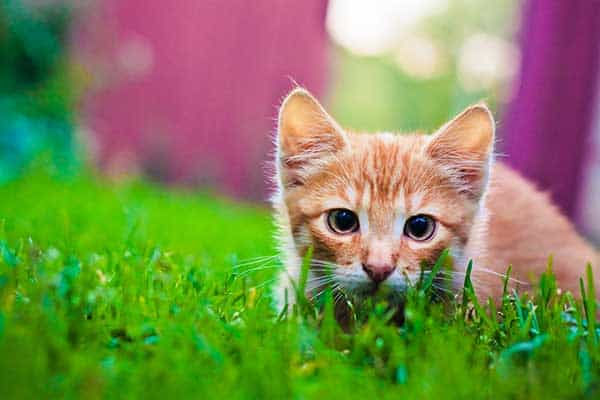
All in all, ant poison is probably the area where most cat owners should focus on. But, what happens if cats eat ant poison?
Immediate symptoms to watch out for are gastrointestinal issues. If the poison isn’t pet-safe, it might as well kill your cat.
Remember that ant poison is just as dangerous if your cat is directly exposed to it as it is if the cat eats poisoned ants. It’s also worth noting that ant poison is mostly available in the form of powder. So, perhaps you were also wondering, what happens if cats eat ant powder?
Well, the effects are similar to what could occur if your cat eating ant poison.
What to do if your cat eats ant poison?
The best way to go about addressing ant poisoning for cats is to schedule a visit to the vet.
How Do I Get Rid of Ants Without Harming My Cat?
There are safer ways to get rid of ants from your compound without harming your cat.
First, you should consider harmless and pet-friendly ant killers like Ultrasonic Pest Repeller. This device repels ants using electricity as opposed to harmful chemicals. Just plug it in a power socket and you’re good to go.
The product is 100% pet-safe and since it doesn’t emit radiation, it’s safe for humans too. And the best part is that Ultrasonic Pest Repeller doesn’t only repel ants but other bugs as well.
The second strategy for getting rid of ants without harming your cat is to keep ants out of cat food.
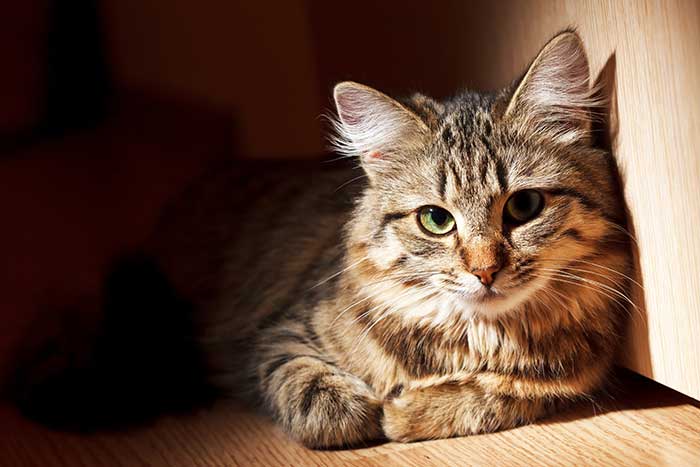
But how do you keep ants out of cat food?
Well, there are numerous ways to go about it. You can start by investing in an ant-proof cat bowl and if that doesn’t work, keep your cat food in air-tight containers.
Another best practice is to thoroughly clean your cat’s food bowls after use. You can also try keeping the feeding area clean and if it comes down to it, shift to a new feeding zone.
Conclusion
Cats are attracted to ants as much as ants are attracted to cat food.
While most ant species aren’t toxic to cats, the insects can be quite annoying, both to you and your feline friend.
Fortunately, you can implement the tips we’ve highlighted above to keep ants out of your cat’s life and out of your home.

